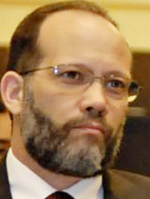The CARICOM secretariat is to work with member states to harmonise certain trade policies to facilitate intra-regional agricultural trade.

Assistant Secretary General, Trade and Economic Integration Irwin La Roque at a yearend press conference on Thursday acknowledged that there have been many issues hampering this type of trade in the region since several countries have not been facilitating and have highlighted many sanitation issues.
He noted that this has slowed down trade and in this regard the secretariat will seek to work with member countries to harmonise requirements and procedures. However, he noted that this cannot be totally unregulated trade.
He posited that if countries are able to trade more freely in agricultural produce this would not only address the issue of reducing the region’s food import bill but this would also tackle the issue of poverty.
In terms of investments in agriculture, he pointed out that a ministerial subcommittee has since been implemented and supported by the Inter- American Institute for Co-operation on Agriculture (IICA) and the Food and Agriculture Organisation (FAO) to look at the issue.
He observed too that the significant decline in investment was an issue which the secretariat also intends to address with member states and urged that the amount of financing for the sector at the national level should be looked at.
He revealed too that CARICOM is working to address the policy framework to deal with the issues and was mandated by heads at the last July meeting in Georgetown to set up the Caribbean Animal Health and Food Safety organisation.
Meanwhile, in terms of the CARICOM Single Market, La Roque reported that based on an appraisal conducted during the year in all member countries, there has been some amount of progress as regards the functioning of certain mechanisms.
The appraisal included a review of member states’ compliance with obligations and the challenges which they face.
He said indications are that the single market is functioning but stated that one of the issues highlighted was the lack of capacity at the country level to put certain things in place to make it more efficient.
The findings, he said, were submitted to a convocation on this component which was held in Barbados recently and chaired by Prime Minister David Thompson.
He noted that one of the issues raised at that forum was a need for the issue of transportation within the region to be addressed as well as public education and information.
With regards to the issuance of skills certificates, La Roque stated that his department is working with member states to identify administrative steps to be put in place for the issuance of certificates, adding that there were still some mechanisms in some countries that had to be fine- tuned.
He said teams were on the ground in each member state working to achieve this.
He noted that there were still some countries asking holders of certificates to identify where they will be employed when in fact the certificate allows them at least six months stay to search for employment.
In response to queries La Roque assured that the secretariat intends to place priority on the development of small and medium-size enterprises.
Haiti
At the last CARICOM meeting heads decided that Haitians travelling to member countries on official or diplomatic passports do not need a visa. However whether the free movement of skilled persons will apply to that country is yet to be decided.
Secretary General Dr. Edwin Carrington in response to a query from a Haitian-based journalist explained that the secretariat and heads would have to discuss the outflow of Haitians into other countries, both in the interest of Haiti and member states.
He pointed out that the French-speaking Caribbean nation was not yet fully on board with each component of the CSME.
Meanwhile Assistant Secretary General Foreign and Community Relations Colin Granderson refuted suggestions that instability was plaguing the country again.
He noted insisted that Haiti is currently politically stable and also has heightened security.
Based on feedback he said the community is seeing a more secure Haiti with investment taking place.





